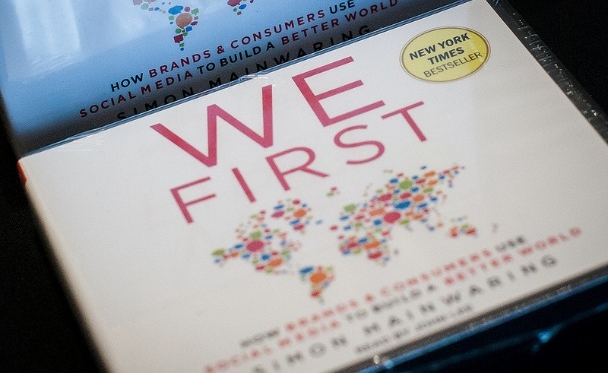
Global Branding and Public Diplomacy: A Conversation with Simon Mainwaring
The USC Center on Public Diplomacy was pleased to host CPD Advisory Board Member, Simon Mainwaring for a discussion about his recent New York Times bestselling book, We First.
We First is a new way of looking at the role of the private sector and social media in our world. Mainwaring explores how global social issues can be addressed by business using social technology. The implications and implementation for the public diplomacy student and practitioner include:
• How do we use social media to share and amplify relevant and timely messages to home and foreign audiences?
• What is the role of U.S., foreign, and multinational corporations in a mutually dependent global community?
• How can social media be used to create cultural bridges between countries in the same region or across the world?
• What are the long term implications of social technology for business and public diplomacy?
• How do brands and customers form meaningful partnerships that can leverage mobile, social and gaming technologies to build a better world?
Simon Mainwaring shared the thinking behind We First and the implications for public diplomacy at home and abroad.
SYNOPSIS
With online information-sharing rapidly occurring in “real time,” corporations are facing increasing public scrutiny as consumers continue to demand consistent and transparent corporate social responsibility practices. In particular, consumer use of social media has created the existence of a vast public forum where consumer approval and/or distrust of various companies and their practices is shared—repeated and “re-posted”—across communities and borders worldwide.
“Transparency is everything now,” observed global branding expert and CPD advisory board member Simon Mainwaring during a “CPD Conversations in Public Diplomacy” discussion at USC on February 9, 2012. Consumers are often motivated by social purpose and are increasingly turning to brands that are informed by a relevant purpose: “Cause marketing must become because marketing.” Mainwaring’s new book, We First, (Palgrave Macmillan, 2011) is a New York Times best-seller that explores how businesses can use social technology to address a range of global social issues that matter to consumers.
Mainwaring, who has worked extensively with some of the world’s biggest brands, including Nike, Motorola, and Toyota, dubbed 2012 the year of consumer activism, calling for new forms of brand and consumer partnerships built through contributory consumption. “The evolution of revolution is contribution,” he said. “The future is the shared story we write every day." Noting the similarity to the practice of public diplomacy, Mainwaring argued that there has been a shift in the consumer/business relationship as companies now engage in direct communication with their customer base via mediums such as Facebook and Twitter. This emerging relationship inherently begins when a company listens to its worldwide consumer base. Listening is one of the most basic and vital tenets of public diplomacy and when used effectively as a soft power tool, it creates a mutually-beneficial platform of engagement between non-traditional actors, including companies and consumers. “Brands are effectively becoming analogous with nations, placing more value on the ties between their brands and customer base,” he noted.
Mainwaring concluded his remarks by urging attendees to share in his optimistic vision of “driving the change we want to see in the world”.
Visit CPD's Online Library
Explore CPD's vast online database featuring the latest books, articles, speeches and information on international organizations dedicated to public diplomacy.











